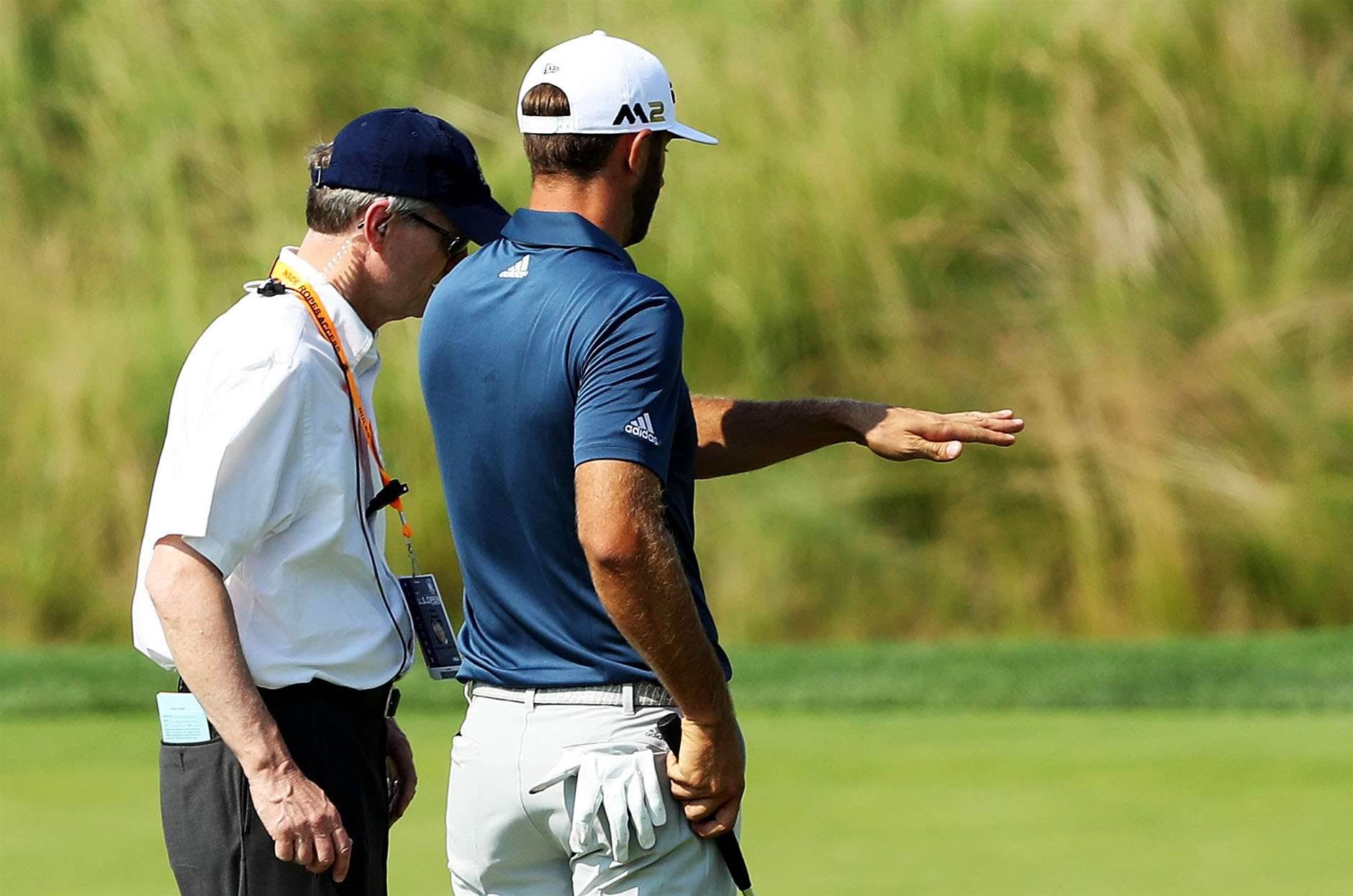Had a couple of rules officials approached me on the 12th tee in the final round of a US Open I was leading to tell me I might be getting a penalty for something that happened seven holes earlier, I’m not exactly sure what I would have said or done.
I know I would have argued though. I wouldn’t have immediately played on without knowing the score as Dustin Johnson did at Oakmont back in June. I wouldn’t have made any demands, but I would have asked the officials to make a decision on the spot. If they were going to penalise me I would have wanted to know there and then.
Which brings me to the initial ruling on the 5th green. As he made a few practice strokes to the side of his ball, DJ was deemed to have caused it to move, which was a nonsense. I’ve watched the video a few times and it never at any time seems to me that he even came close to making the ball move.
Like everyone else, I heard DJ’s playing partner, Lee Westwood, in the background. He called out to the referee that DJ had not caused the ball to move and was innocent. Lee saw what happened and was happy. Plus, what possible advantage was DJ going to gain even if he had been guilty as charged? None. There is an inherent inconsistency with this rule. If you can inadvertently knock your ball off a tee and replace it without penalty, what is the difference here?

My thinking on this is quite straightforward: If a player doesn’t cause a ball to move on the putting green and it does move, you simply play on from the ball’s new position. No penalty. But, if you do accidentally cause it to move, then yes, you do put the ball back in its original position. Again no penalty. Just as there would be if you mistakenly bump your ball off a tee.
Then there is the rules official following the group. What is that guy there for if his decisions are going to be second-guessed? For me, it is too abstract looking at a short clip on a screen. Only the official walking with DJ could have a feel for how he putts, how he makes his practice strokes, how his putter moves back and forth. So he would be in the best position to determine if DJ did cause the ball to move, not some guy in a truck watching a recording. Isn’t that why we have roving referees, so that we can listen to them?
In the end, the United States Golf Association got lucky. The result of the championship was unaffected. DJ looked like the best player in the field. And he won. It would have been even more damaging to the USGA if DJ had won by a shot and they had applied the penalty. I can’t even imagine what would have gone on then.
In a way, I hope the USGA would have docked him the shot in those circumstances. If they were going to – and they had clearly made up their minds when they got to the 12th tee – I hope they wouldn’t chicken out just because of potential controversy. That would be an error too, which would at least have been consistent, given that they seem to have been wrong at every turn in this whole thing. Every time they came to a fork in the road, the USGA went the wrong way.
“Then there is the rules official following the group. What is that guy there for if his decisions are going to be second-guessed?”
Adding to the overall embarrassment is what happened during the US Women’s Open at CordeValle a few weeks later. It was a great tournament. Until the end at least, when Anna Nordqvist was penalised for grounding her club in a fairway bunker during the play-off, an infringement visible only on high-definition cameras. She moved maybe a grain or two of sand on her backswing, something that surely occurs unnoticed 20 times in every round.
Again, having made the decision to penalise Nordqvist, the USGA got the timing wrong. They informed the players on the last hole of the play-off, but after Nordqvist had hit her third shot over the water short of the green and before Brittany Lang played hers. That was clearly unfair.
To sum up, I see all of the above as an opportunity to fix the prevailing mentality around the rules. Both Johnson and Nordqvist were penalised for things that gave them no advantage over anyone in the field. Not one player would argue that they did. So we need a rules official in the television truck, someone who can quickly determine whether or not such incidents have any material effect on the play or the result. It’s a simple equation: No advantage, no foul.
Related Articles

Under the radar into contention: Si Woo’s scintillating Australian Open Saturday

Kiwi's aim to out-Fox the Americans and break Cup hold












